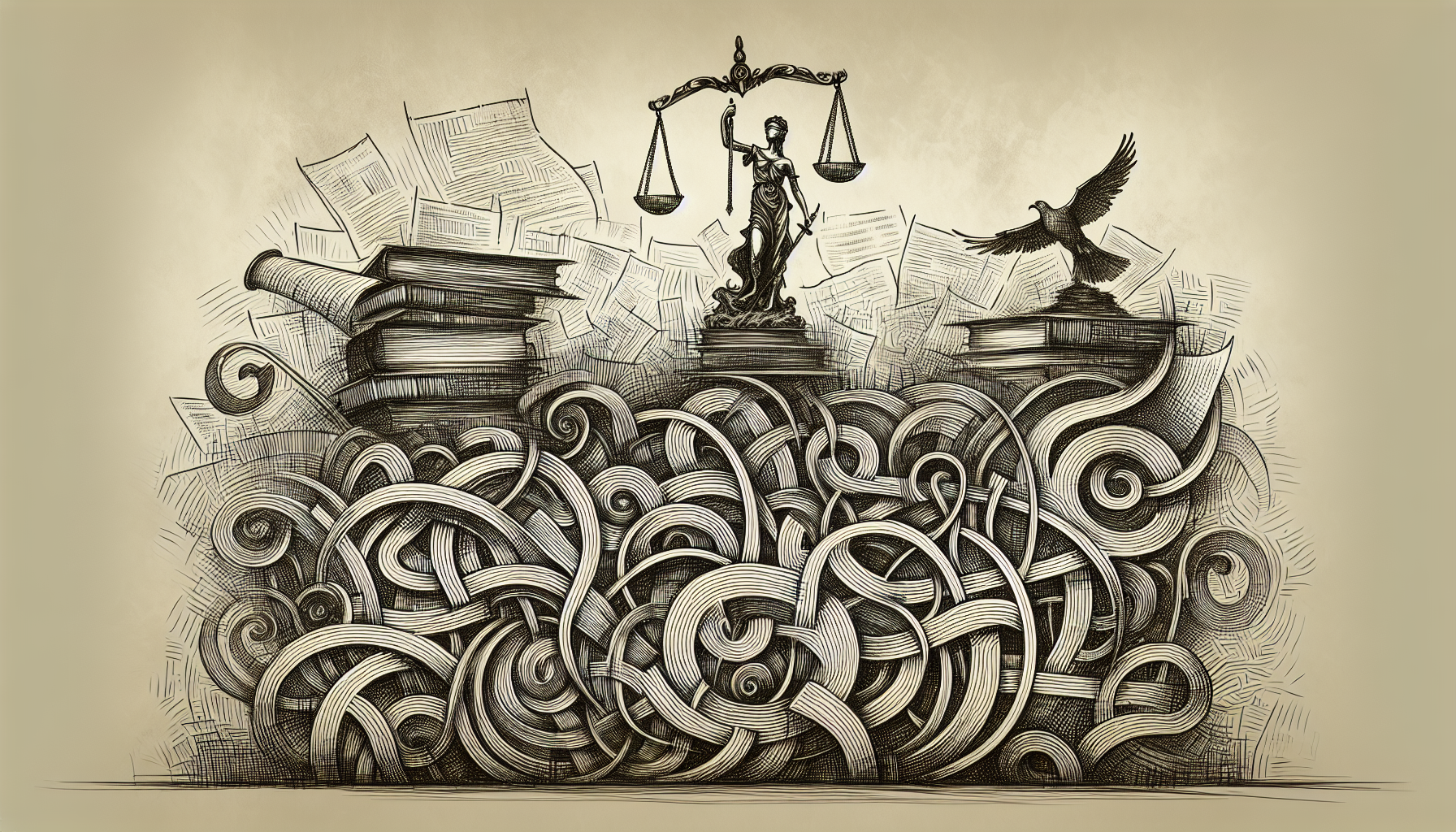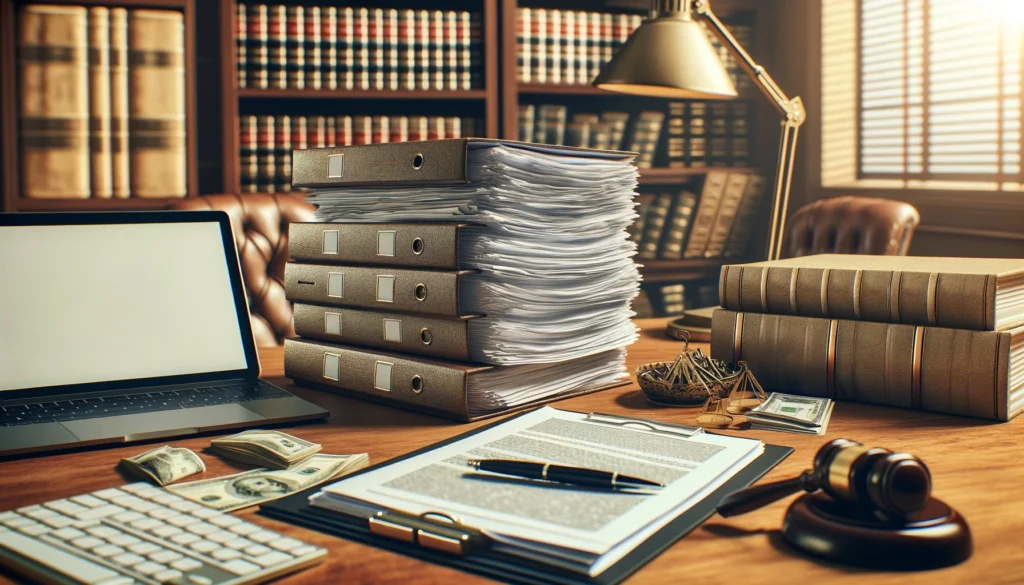
Unveiling the Power of ChatGPT for Paralegals
The legal world is no stranger to technological evolution. From the advent of word processors to sophisticated legal research platforms, the landscape has continuously adapted to incorporate tools that bolster efficiency. Enter ChatGPT, a powerful language model (LLM) that has significantly advanced over recent years.
ChatGPT and similar LLMs are capable of comprehending intricate textual information and producing human-like text based on prompts. This capability positions them uniquely within the personal injury legal framework, where rapid data processing and nuanced understanding are essential. By leveraging these technologies, paralegals can expedite various tasks, optimize workflow, and ensure meticulous precision in handling cases.
Crafting the Perfect Prompt: The Art and Science
To harness the full potential of ChatGPT, mastery of prompt engineering is crucial. This art and science determine the quality of output generated by the AI.
Introduction to Prompt Engineering: Effective prompt engineering begins with a concise and clear introduction. For instance, a prompt like, “Summarize the key points of the Personal Injury Protection (PIP) legislation” sets the stage for detailed and accurate responses.
Defining Context and Specificity: The context of a prompt influences its outcome significantly. When dealing with personal injury cases, specificity ensures that the AI provides pertinent information. For instance, specifying “Summarize recent amendments in PIP insurance laws in Florida” narrows the focus and provides a more targeted response.
The Role of Keywords and Phrases: Keywords and phrases are instrumental in guiding ChatGPT. Phrases like “statutory limits,” “burden of proof,” and “negligence standards” are crucial for personal injury cases, compelling ChatGPT to delve into the specifics that matter most.
Also read:
Streamlining Legal Research: Go Beyond Google
Traditional search engines have been the backbone of legal research, but LLMs like ChatGPT can provide a refined and time-efficient alternative.
Using ChatGPT for Efficient Case Law Searches: Rather than sifting through numerous search engine results, ChatGPT can directly parse legal databases and summarize case laws. For instance, a prompt such as “List landmark cases related to PIP insurance fraud” can yield a comprehensive overview.
Nuanced Prompts for Finding Pertinent Legislation: Crafting detailed prompts like, “Explain the key provisions of the 2021 amendment to New York’s personal injury statute concerning comparative negligence” can quickly lead to the exact information a paralegal needs, reducing time spent on tedious searches.
Tips on Verifying AI-Sourced Information: While ChatGPT is impressive, human oversight remains essential. Cross-referencing AI-generated information with trusted legal databases ensures accuracy and reliability. Consultation with supervising attorneys also mitigates the risk of overreliance on AI insights.
Also read:
Drafting Legal Documents: Precision and Clarity
Drafting precise and legally-compliant documents is a cornerstone of paralegal responsibilities. ChatGPT can substantially aid this process.
Generating Legal Drafts and Correspondence: Paralegals can use ChatGPT to draft initial versions of demand letters, motion drafts, or client correspondence. For instance, a prompt like “Draft a demand letter for a soft-tissue injury case” produces a solid foundation upon which legal specifics can be added.
Improving Drafts with Iterative Prompts: Iterative refinement can enhance document quality. Starting with “Draft a motion for preliminary injunction” and then iterating with specifics such as “Include arguments for irreparable harm from defendant’s actions” ensures a more polished output.
Ensuring Compliance with Legal Standards: To ensure the drafts meet legal standards, prompts like “Review the previous draft for compliance with federal civil procedure rules” can guide ChatGPT to scrutinize specific legal frameworks, thereby assisting paralegals in maintaining high levels of precision.
Also read:
Automating Routine Tasks: Freeing Up Valuable Time
Routine tasks often consume considerable time, but automation through ChatGPT can significantly streamline these processes.
Calendar Management and Deadline Tracking: Prompting ChatGPT with “Set reminders for all upcoming court deadlines related to Case X” can automate calendar management, ensuring that crucial dates are never overlooked.
Data Entry and Client Record Keeping: ChatGPT can also be employed for data entry tasks. By using prompts like “Update client records with recent medical reports,” paralegals can ensure that all information remains current without manual entry.
Automated Annotations and Summarizations: Similarly, prompts such as “Summarize deposition transcripts and highlight key testimonies” can swiftly distill voluminous texts into concise summaries, freeing up valuable time for more critical tasks.
Also read:
Enhancing Client Communication: The Human-AI Interface
Client communication is paramount in legal practice, and LLMs like ChatGPT can ensure it is both clear and efficient.
Generating Clear and Concise Client Updates: Regular updates can be automated via ChatGPT. A prompt like “Draft a monthly update on the progress of Case Y focusing on deposition and discovery outcomes” provides clients with essential information swiftly.
Creating Customized Communication Templates: Customization is key. Prompts such as “Create a template for initial consultation with a personal injury client, including main questions” can streamline the preparatory phase, ensuring no critical details are missed.
Leveraging LLMs for Multilingual Support: For firms dealing with diverse clientele, prompts like “Translate the settlement offer summary into Spanish for Client Z” can bridge communication gaps, ensuring that all client needs are effectively met.
Also read:
Ethical Considerations: The Importance of Oversight
Amidst the numerous benefits, ethical considerations cannot be overlooked.
The Need for Human Supervision: While ChatGPT is a powerful tool, human oversight is vital. Legal professionals must review all AI outputs to verify accuracy and appropriateness.
Addressing Potential Bias and Misinterpretation: Ensuring that prompts are clear and unbiased is critical to preventing misinterpretations or skewed results. Regular audits of AI-generated content help in identifying and rectifying potential issues timely.
Ensuring Confidentiality and Compliance: Confidential data must always be protected. Utilizing encrypted platforms and adhering to data protection standards ensures client information remains secure during AI processing.
Also read:
The Future is Now: Continual Learning and Adaptation
The evolving legal landscape requires continuous learning and adaptation.
Keeping Updated with AI Developments in the Legal Field: Staying abreast of the latest developments in AI technology and its applications in law can significantly enhance a paralegal’s efficiency and effectiveness.
Encouraging Continuous Skill Enhancement: Investing time in learning advanced prompt engineering and AI utilization techniques proves beneficial in the long run, equipping legal professionals with cutting-edge tools.
The Synergy of Human Skills and AI Assistance: Finally, the harmonious integration of human expertise and AI capabilities promises a revolutionary shift in paralegal practice, opening doors to unprecedented levels of productivity and accuracy.
In conclusion, the journey of mastering ChatGPT for personal injury cases is continuous, demanding attentive learning and adaptation. Together, AI tools and human diligence can forge a path towards a more efficient and resilient legal practice.


